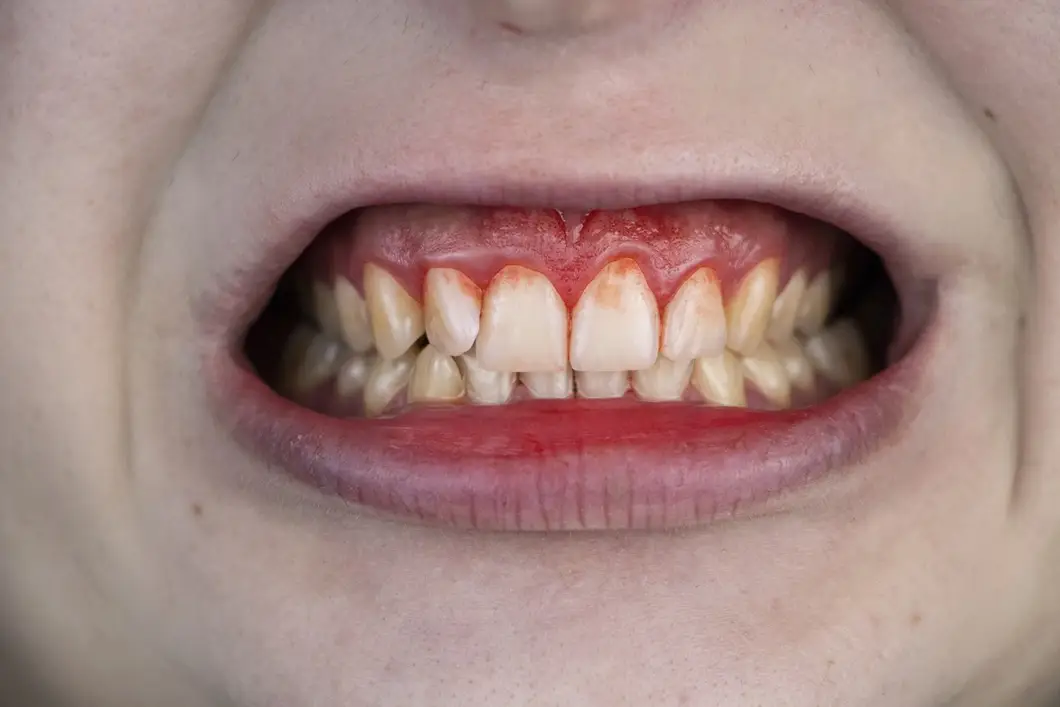KNOW YOUR ALZHEIMER’S RISKS: #2 GUM DISEASE
If we described Periodontal Disease, you’d think we were describing Alzheimer’s Periodontal Disease (PD) is painless and often goes undetected until damage has already occurred. PD is a disease of inflammation. This disease produces something called “plaque” which is a sticky, destructive biofilm that in the mouth covers the tooth surface. PD is considered an age-related disease and increases in incidence the older you are. Periodontal Disease is increasing in incidence worldwide. The bacteria in your mouth, like what we are finding to be true of the bacteria in your gut, needs to be balanced to support optimal health. Unfortunately, just like your colon – which, by the way is at end of the same canal (the alimentary canal that begins in the mouth and ends at the rectum) when your oral bacteria becomes overpopulated by “bad” bacteria – bigger and bigger problems arise. The damaging oral bacteria that are there for a reason (food digestion) will start to digest your gums if they aren’t kept under control. First signs are bleeding gums and swelling, usually in local areas like a back molar or two. Next, the involvement will expand to more teeth, with even more observable inflammation that drives below the gum line. Overtime, the bacteria will eat away the structures that hold the tooth in place (detachment) causing the tooth to move to the point that, if left unaddressed – you will lose the tooth. Worse, what’s happening deep in that tooth socket is even more damaging – the bacteria by this point is destroying your jaw bone. All this on its crusade to find a blood supply. And once it breaks into a capillary, vein or artery – away it goes to distant parts of your body and directly into your brain. It is very important to understand that bleeding gums is not normal/natural from ordinary things like: teeth brushing, flossing or eating. According to the CDC, 50% of individuals over the age of 30 have some Periodontal Disease. By the time you are 65, that number is 70%. And the bacteria that is responsible for this destructive disease can be communicated – through sharing utensils, touch and kissing. But where not everyone with Periodontal Disease develops Alzheimer’s Disease, over 70% of patients with Alzheimer’s have Periodontal Disease. Herein is where The Alzheimer’s Legacy Lab comes in. The work our foundation (with your generous donations) is funding will fully explain this phenomena. Tooth Loss is Highly Associated with Dementia Risk The relationship between tooth loss and cognitive decline is “dose-dependent” In a 2021 study, researchers discovered a 1.4% increase in the risk of mild cognitive impairment (MCI) with each lost tooth and a 1.1% increase in the risk of generalized dementia. Participants who were missing 20 (or more) teeth had a 31% higher risk of cognitive impairment and/or dementia. And there’s some real science to this: Tooth extractions allow oral bacterial to get into the blood stream and into the brain Extracting a tooth creates a 1″ deep hole from your mouth to your jaw bone. And for an adult, this hole takes anywhere from 3 months to 1 year to fully heal…longer if your are older, even longer if you suffer from Diabetes. Net/net – tooth loss increases your Alzheimer’s risk by creating (and leaving) an open access point to your body’s blood supply for oral bacteria to go where ever your blood takes it. So when you think about exposure, the longer it takes to close this hole, the more oral bacteria can get into your blood stream. Especially when you consider that all along the inside of the extraction site there are small blood vessels that can transport oral bacteria out of the mouth and into the body and brain. More importantly, the jaw bone where the tooth gained it’s blood supply is fed by arteries. And no kidding: these same arteries also feed the brain. The healing time of an extraction site depends on a few factors: the type of tooth that’s extracted, the trauma associated with the extraction (simple or surgical), and – you guessed it – your age. And to make matters worse, as the study above indicated, your risk of developing dementia (including Alzheimer’s Disease) increases with every tooth you lose. And think about it – there are two things most people living in memory care share – dementia and dentures! That’s not coincidental. That’s a white flag waiting to be someone else’s “aha moment”. It’s certainly been ours. So consider this tip for Preventing Alzheimer’s the next time you’re at the dentist and there’s a choice to save your tooth or have it pulled. If having dentures – and subsequently losing them at your nursing home – wasn’t such a big deal, then Universities wouldn’t be spending so much money trying to devise a better plan to find the dentures that…their AD patients keep losing. This fact should be a signal to other researchers studying Alzheimer’s Disease – that tooth loss must be an Alzheimer’s Risk Factor. And it is. Our own research within the 10,000+ patient base that our dental clinic in Saint Paul Minnesota served proved time and time again that losing a tooth later in life was a great predictive factor for the development of dementia – including Alzheimer’s Disease. This study lends support to the fascinating association that tooth loss increases your Alzheimer’s risk. The study’s conclusion was that older adults that lose a tooth are particularly vulnerable to negative cognitive effects. Periodontal Disease = Tooth Loss Many adults lose teeth to injury or break down. But Periodontal Disease (PD) remains the number one cause of tooth loss in the adult population. In looking at Alzheimer’s Risk Factors – you’ll see that Periodontal Disease is in the top 5 comorbid conditions for AD. Why is that? Visit this article on the connection between tooth loss and AD Find out more One Final Note: At some point, dentistry will need to address this connection between tooth loss
KNOW YOUR ALZHEIMER’S RISKS: #2 GUM DISEASE Read Post »



